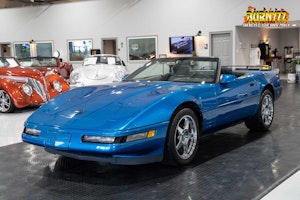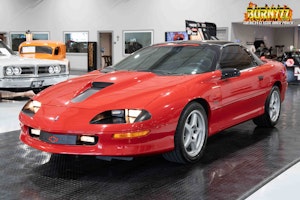Media | Articles
Piston Slap: Primed for success, or does it even matter?

John writes:
To prime or not to prime? This is a discussion that is still not settled among even the best engine builders. We use much assembly lube to protect the engine upon start-up. What happens to the lube when we prime the engine? Should we prime the complete engine before the initial start, making sure oil is coming out of every rocker? Some builders want us to prime for several minutes while we turn the crankshaft. Some want us to only prime until we see oil pressure and some believe the assembly lube is enough. Any thoughts?
Sajeev answers:
I doubt this will ever be settled? For me, it’s about risk aversion as a new motor is a significant expenditure. We all have different risk tolerances, and mine are pretty low after getting burned by a poorly assembled motor in Project Valentino, I lean toward some amount of oil pressure building throughout the engine before the first engine start up. (Not that oil pressure was my engine’s problem, but that’s a whole ’nother story.)
Let’s consider another angle to risk aversion: oil changes. More to the point, can you minimize the amount of time an engine runs without oil flowing through its veins? I am one of those nut jobs that not only fills a new filter with oil before installation, but I also rotate the filter at an angle to let all the air escape the pleats. After turning the filter a few times, you can add even more oil to a new oil filter for maximum risk aversion. Provided you don’t have to turn the filter to install it, but I digress …
Marketplace
Buy and sell classics with confidence
But oil changes and priming a brand new engine with oil are two different beasts. So first off, let’s get everyone up to speed on what is involved with priming an engine with oil.
Well then! Priming the system on a fresh motor isn’t quite the cake walk of a primed filter in an oil change, but ensuring the system is primed eliminates variables in your build. The last thing you want to see is performance issues minutes after installing a fresh engine, but sometimes the engine itself necessitates the extra work. Not all designs are created equal, and turbocharged examples (video above) are more likely to need oil system priming to ensure the turbos aren’t starved of lubrication.
Yup, there isn’t a good answer. Unless you are risk averse, and then you absolutely should prime the system before startup. If you aren’t, just do whatever the engine builder suggests. And if you’re an engine builder, you really need to chime in below in the comments!
Have a question you’d like answered on Piston Slap? Send your queries to pistonslap@hagerty.com, give us as much detail as possible so we can help! If you need an expedited resolution, make a post on the Hagerty Community!









